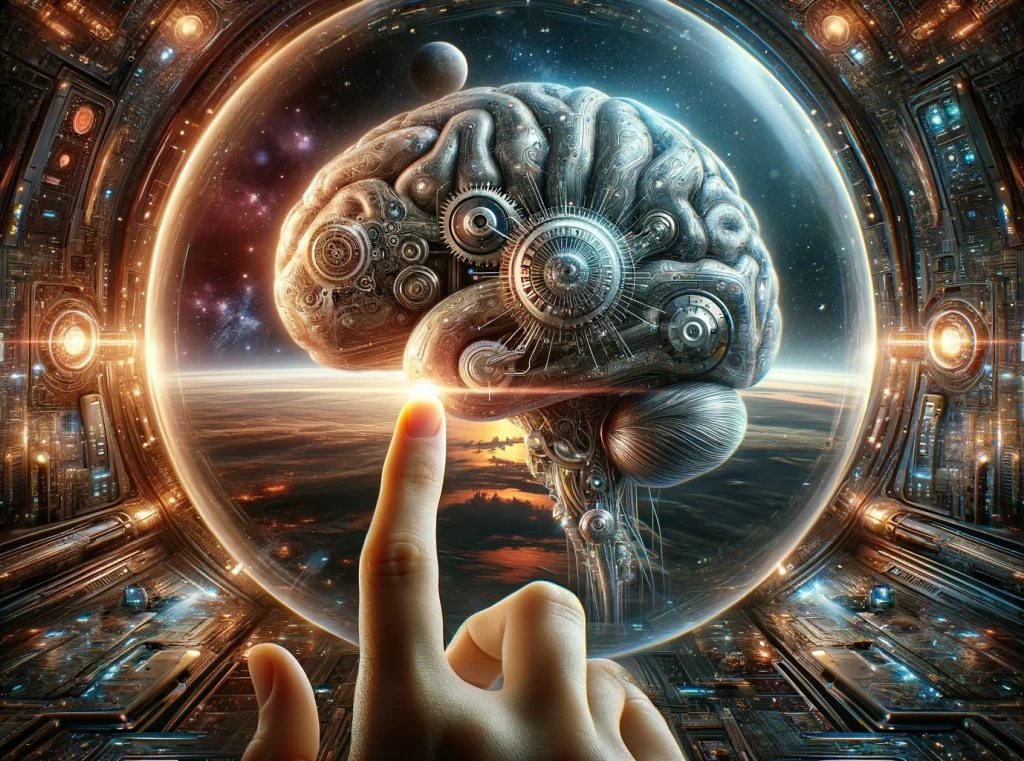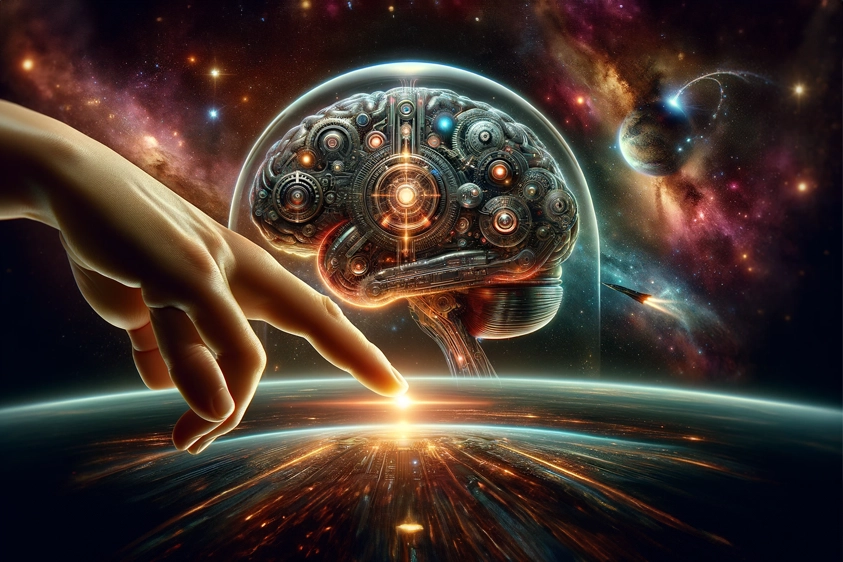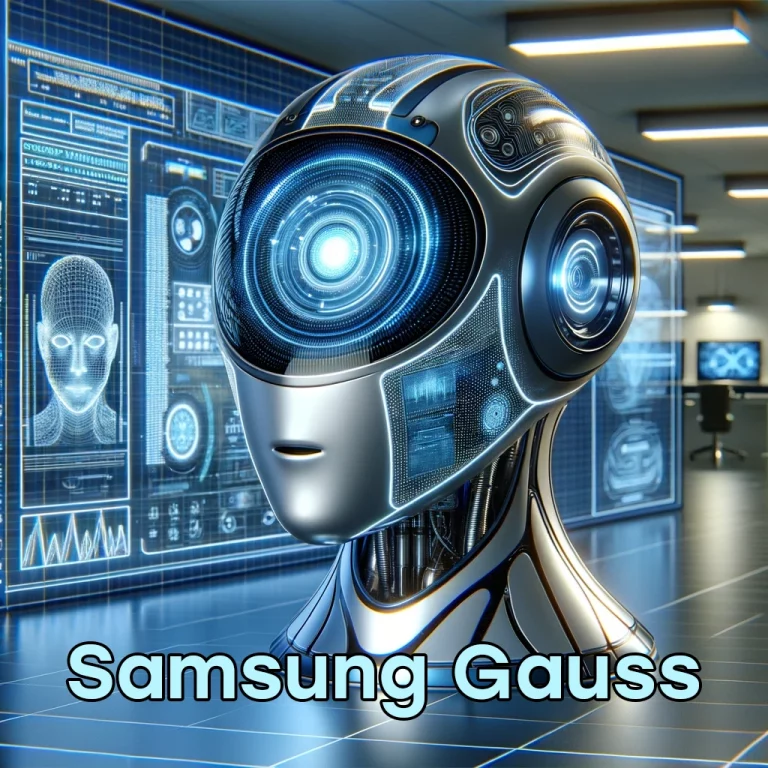Artificial Intelligence Enters 2024: Six Trends Shaping the GenAI Landscape
As 2024 unfolds, you’re witnessing an unprecedented integration of artificial intelligence into both personal and professional spheres. The seemingly relentless advancement in AI technology has ushered in a new era where machines exhibit astonishing capabilities, providing you with tools to enhance efficiency, creativity, and decision-making processes. This year, AI continues to push boundaries, introducing models that connect seamlessly to various data systems, exemplifying smarter and more controllable systems designed to yield consistent results.
The evolution of AI into GenAI models marks a step towards an inclusive technology landscape. These models are characterized by their learning and predictive algorithms offering us control and flexibility than ever before. Recent announcements from OpenAI hint at products that will likely transform how we interact with technology causing effects across industries and reshaping our digital experiences.
With these advancements at hand we find ourselves on the cusp of an AI revolution that’s more integrative than disruptive. From enhanced content generation capabilities to AI’s role as a partner in the workplace, artificial intelligence in 2024 is set to enhance our lives in ways. Get ready to leverage these emerging trends to stay ahead of the curve, in artificial intelligence and make the most out of what AI has to offer this year.

Advancements in AI Technologies
As we enter 2024 the world of artificial intelligence is witnessing progress that brings immense value to various industries. From the rise of cutting edge AI to breakthroughs in quantum computing and significant advancements in healthcare these technologies are not trends but game changing innovations that are reshaping our world.
Next Generation of Generative AI
In 2024 generative AI has surpassed its stages of content creation. Leading companies like OpenAI have pushed the boundaries resulting in nuanced GenAI. We now witness image generators with a level of detail and creativity empowering industries by enabling designs and content with minimal human involvement. Moreover these technologies have become more accessible, democratizing innovation and allowing a wider range of users to leverage the power of generative machine learning algorithms.
Quantum AI Breakthroughs
In the realm of Quantum AI quantum computing is revolutionizing how we tackle calculations. The growth in qubits and their stability has accelerated significantly providing us with capabilities. This progress goes beyond possibilities; it translates into benefits across sectors such, as finance, logistics and cybersecurity. The speed and efficiency offered by quantum enhanced algorithms provide an edge in these domains.
| Quantum Computing Contributions |
|---|
| Sector |
| Finance |
| Logistics |
| Cybersecurity |
AI in Healthcare Evolution
The integration of AI technology, into the healthcare industry is bringing about a revolution in outcomes and medical research. In 2024 machine learning applications have advanced to provide diagnoses and personalized treatment plans. Healthcare providers now rely on AI to predict trajectories, enabling detection and efficient management of diseases. This progress signifies a step towards improving patient care accessibility.
- AI-Powered Diagnostics: Improved detection accuracy of ailments.
- Personalized Treatment: Tailored medical plans based on AI analysis.
- Predictive Healthcare: Anticipating disease progression and outcomes.
With these advancements, AI in healthcare evolves from a supporting tool to a central component in clinical decision-making, ensuring that treatments are both effective and economical.

Implications of AI on Society and Business
The impact of AI extends beyond healthcare. Affects both society and businesses. Understanding its implications will help individuals navigate through changes and seize opportunities.
AI and the Transformation of Employment
In terms of employment AI serves as both a disruptor and an enabler. It has significantly increased productivity in sectors where automation complements tasks. Demand for certain human jobs has declined, particularly those involving repetitive physical labor. The demand, for jobs that involve physical tasks has decreased, while there is an increase in roles like machine learning engineers and AI specialists. This shift emphasizes the importance of augmented working experiences between humans and AI making the workforce more adaptable to changing business trends.
Ethical AI and Regulation
When it comes to AI ethical considerations such as transparency, fairness, trust and reducing bias are crucial. AI legislation is taking shape across the world, with countries like the US, EU, China and India are. Considering regulations to govern its use. These regulations aim to ensure that AI is used in a way that promotes fairness and justice. Tech companies are therefore under pressure to adhere to these standards and foster responsible use of AI.
AI Impact on Customer Service
Your interaction with customer service is transforming through AI applications like chatbots and voice-assisted interfaces. ChatGPT and similar tools are enabling higher efficiency in handling customer inquiries, providing 24/7 service in the digital world. This trend is expected to continue as AI further develops its ability to discern nuances, on social media and other customer service channels. Companies that incorporate these tools are discovering that they can provide a customer experience by delegating tasks to automation allowing human agents to focus on resolving more intricate problems.







